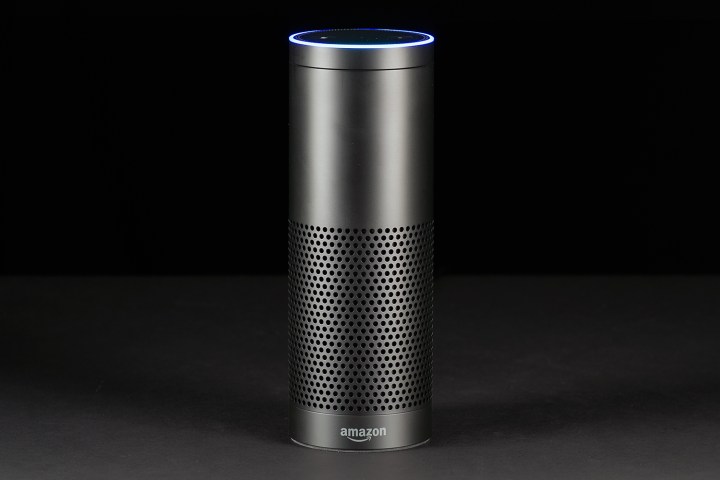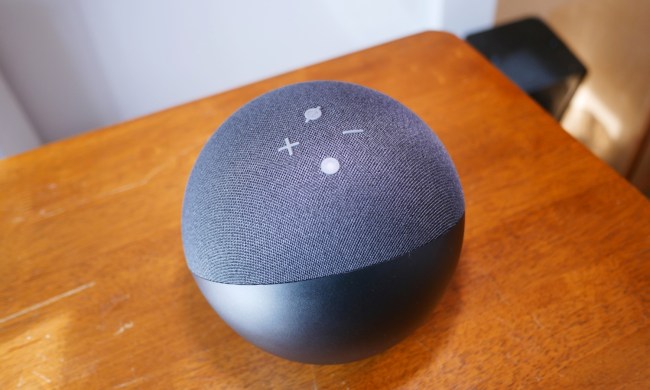
The Echo is best described as an always-on personal assistant. It packs a 360-degree microphone array from which its voice-operated assistant (with the default name of Alexa) can derive all sorts of actions from voice commands: playing music from Amazon Prime Music, Pandora, and other services through the built-in speakers, spelling out words, announcing the weather, and reporting traffic, to name a few. Echo pulls all of this data from the cloud, which Amazon says allows it to constantly improve accuracy and speech recognition, and the speaker also integrates with Amazon’s Fire Tablets for added functionality.
The Echo has gotten a lot more capable since its launch last November, too. It’s gained support for reading aloud synced Kindle audiobooks, re-ordering items from Amazon (if you’re a Prime member), and serving up schedule and score information from MLB and MLS. And in April, Amazon introduced arguably the most useful addition to Echo yet: integration with smart home products from WeMo and Philips. You can instruct Alexa to dim the lights, for instance, or turn on the WeMo Switch connected to your coffee maker.
We gave the Echo fairly high marks in our review, but noted the app selection as something to be desired. Now that Amazon’s committed to filling feature gaps, it seems the Echo may very well one day contend with the virtual assistant on your smartphone. Alexa already has the benefit of convenience — it’s on and continually awaiting instructions, not locked and stuffed within your pocket — and can only get better with the help of third-party developers.
It’s a good thing, too, because the competition isn’t lying in wait. Microsoft will soon add Cortana on its always-listening Kinect sensor for Xbox One, and rumors around the upcoming, next-generation Apple TV suggest it’ll act as a home automation hub with Siri-powered voice commands. Neither compete with Amazon’s Echo directly — the new Apple TV and Xbox One aren’t projected to support third-party apps at first — but it isn’t unreasonable to predict Echo-like functionality will come down the line in time. Until then, though, the Echo’s hardly a bad choice.
Available at: Amazon


